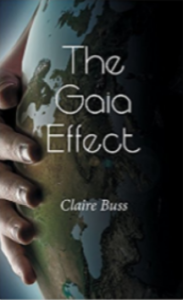
Photo credit: Will Fuller, unsplash.com
The Gaia Effect
by Claire Buss is an entertaining, fast-paced read set in a world, which frankly, may not be as far-fetched as was once thought.
Imagine a world where everyone is infertile and when you are ready to have children, you sign up for “Collection,” and are handed a synthetically created baby.
All of the sudden, this new entity — called Corporation — more or less runs your life, while also discouraging individuals from parenting “naturally.” In this new world, the use of neural implants is promoted, whereby a baby is fitted with an implant filled with nursery rhymes and early education subjects; and the use of a machine to rock your child to sleep is the norm. Parenting “naturally,” i.e. without robots and machines, is so frowned upon that there is talk of making it illegal. And when you think about it, these ideas are not completely farfetched. I just saw a Facebook post for a machine that automatically rocks your baby to sleep when she starts crying.
If these new parental norms were not enough, try to imagine what the news cycle will look like in this world. If you think that the news crawl on the bottom of your television is annoying, try to visualize the constant sweep of news projected across your living room wall and an ear implant that fills you in on the latest.
And, finally, consider that you live in a domed, physically closed-off city because the government has convinced you that noxious gases will harm you should you decide to leave. In addition, all your medical anomalies are mandatorily reported to the federal government.
If the above scenario reminds you of Fahrenheit 451, particularly the constant assault of information and entertainment, then you are not alone.
The Gaia Effect is a splendid debut novel, which won the Uncaged Books 2017 Raven Award for Favorite Sci-Fi/Fantasy Book.
The book begins when a synthetically created baby is delivered to a couple within the context of all of the above-mentioned gadgets. This couple is part of a circle of friends who are trying to make sense of a series of events to come.
The daughter of an important Corporation Board member is the victim of a mysterious assault (the scene is not graphic). Another woman is in the Anti-Corp resistance movement and appears to have wavering loyalties. The husband of one of the other friends is a cop just trying to do his job despite the ever-constant influence of Corporation. And, mysteriously, several women have become pregnant despite the fact that the population is infertile.
The group then struggles with the rumor that, outside the domed city, people are actually able to live well, and that there are no harmful gases or environmental effects as stated by Corporation. In fact, when the group of protagonists eventually do get outside, they learn that not everything is as it seems.
The novel thus contains several mysteries. Why did everyone become infertile in the first place? How are these women apparently fertile now? Can people live outside the domed city, or is that a lie pushed by Corporation to further control the population?
The reader gets the answers, and along the way is taken for a wild, thought-provoking ride. The varied cast of characters works well to present divergent viewpoints, leaving the reader to ponder and come to her own conclusions. That was probably my favorite part of the book. Indeed, neither the ever-present and all-knowing Corporation nor the defiant Anti-Corp movement appear to be either 100% good or evil. Further, the author does a great job of describing the technology, without bogging the reader down with technical minutiae.
The Gaia Effect is well-paced and lighter and less gritty than other sci-fi novels, with a strong message of hope after catastrophe. I’m anticipating the sequel, The Gaia Project.
Get helpful writing tips and more
in your inbox
Join the tribe and get free fiction and self-publishing tips.
Thank you for subscribing.
Something went wrong.


Be First to Comment